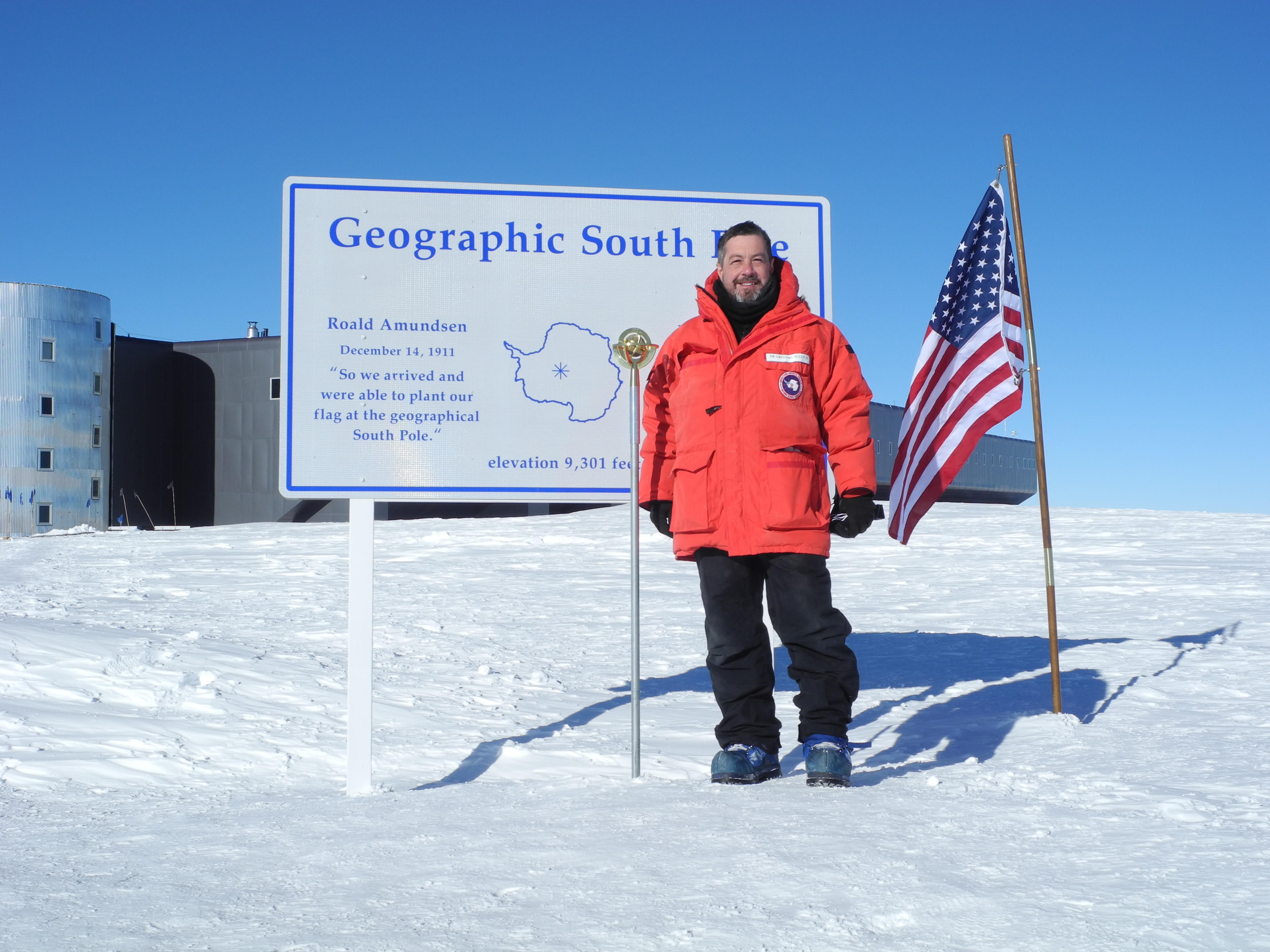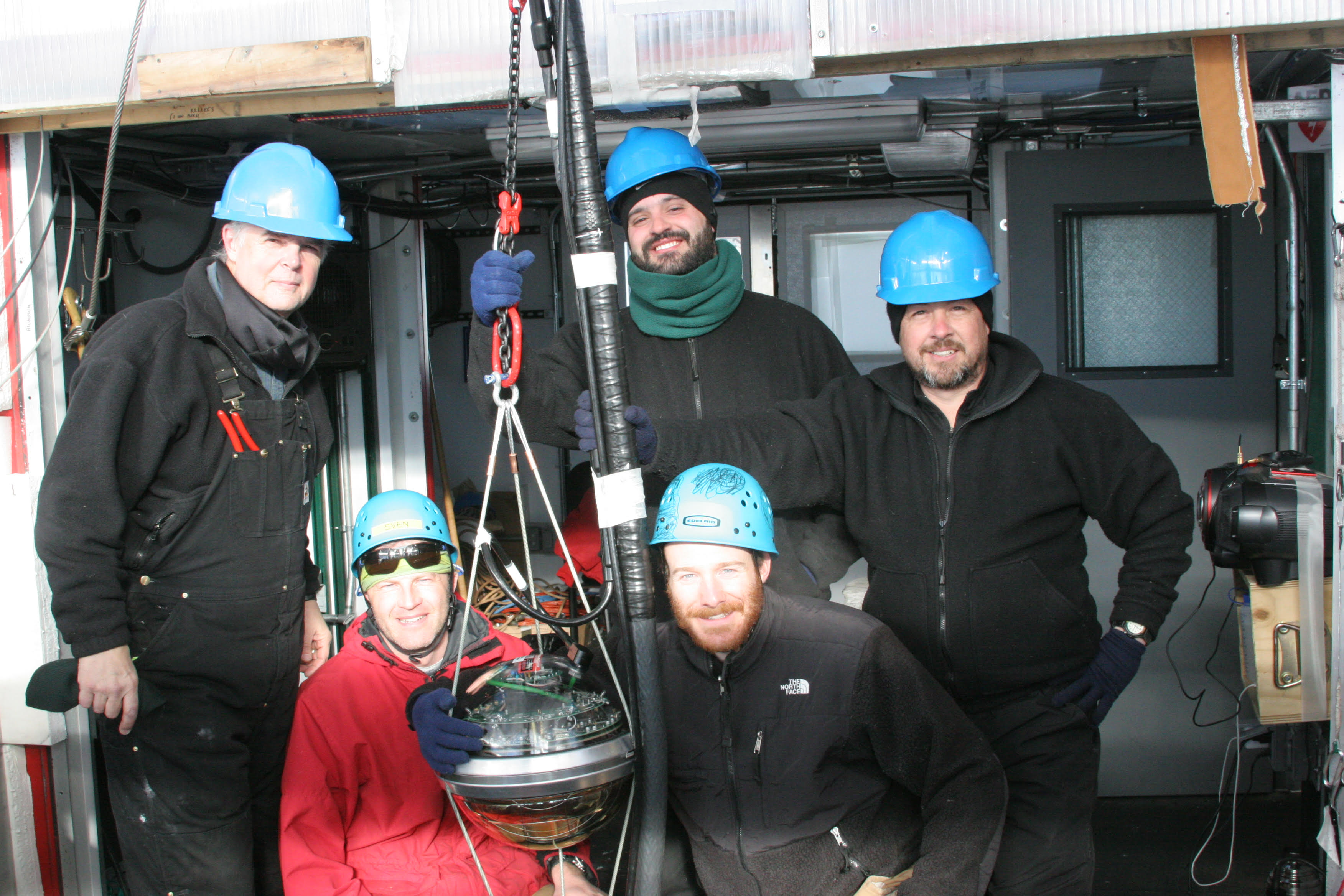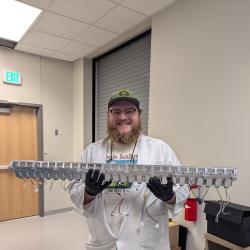Gregory Sullivan Named 2024 Distinguished Scholar-Teacher
University of Maryland Physics Professor Gregory Sullivan has been named a 2024 Distinguished Scholar-Teacher. Established in 1978, the Distinguished Scholar-Teacher title is awarded to a select number of faculty members who have blazed trails in their classrooms and their areas of expertise. Honorees receive $5,000 to support their professional activities and are asked to give a public presentation on a topic relevant to their fields.

Along with making major contributions to three landmark physics experiments that expanded understanding of the universe, Sullivan has offered up-and-coming scientists outstanding teaching and caring mentorship.
Before his 1995 arrival at UMD, Sullivan worked on the Collider Detector at Fermilab that discovered the top quark, the most massive observed subatomic particle; as a Maryland assistant professor, he joined the Super-Kamiokonde project in Japan that proved that the lightest subatomic particle—neutrinos—have mass; later, he helped plan and lead the IceCube neutrino detector deep in the Antarctic ice that has made numerous astrophysical discoveries.
Sullivan’s involvement in the three historic scientific investigations “reflects his superlative scholarship, his taste for physics, and the talent to deliver results,” said Vilas Research Professor and Gregory Breit Professor Francis Halzen of the University of Wisconsin, IceCube’s principal investigator. “In a field of extreme specialization, Greg stands out indeed as a true scholar and a leader in the field.”
Sullivan received his B.S. in physics from Southern Illinois University and Ph.D. from the University of Illinois. He was a postdoctoral researcher and senior research associate at the University of Chicago before UMD, where he was promoted to professor in 2006.

As a teacher, Sullivan turns his own hunger for answers to scientific mysteries into motivation for his students. He works “to inspire curiosity and confidence, to provide infinite patience and support, and to simultaneously foster both a strong spirit of collaboration and intellectual independence—no easy feat!” said Physics Professor and Chair Steve Rolston.
Students provide enthusiastic reviews of his courses—"This class was so freaking awesome, and you were the dopest professor to teach it. I loved the kind of mile–wide, foot–deep approach because this opened my eyes to so much cool physics,” wrote one.
A former doctoral student said Sullivan helped her fight through challenges with her data and self-doubt to find success.
“Dr. Sullivan was more than just an advisor; he was a beacon of support,” said Elim Thompson (M.S. '14, Ph.D. ’18, physics). “As an educator and scholar, he not only provided academic guidance but also offered emotional support, reassurance and a vision of the future.”
Sullivan has served as the thesis advisor for 17 students. He was the department’s associate chair for graduate education from 2006 to 2009. More recently, he served as co-chair of the department's Quantum Education Committee.
He will give a Distinguished Scholar-Teacher lecture on Tuesday, November 12, 2024 at 4 p.m. in room 1410 of the Toll Physics Building.
Article written by the Office of Marketing and Communications.







